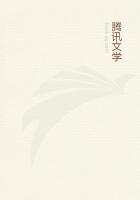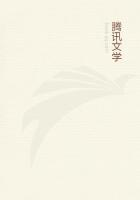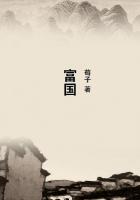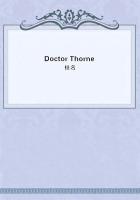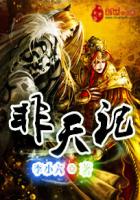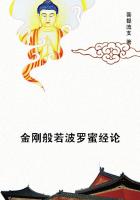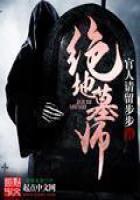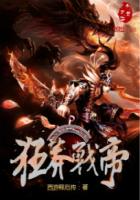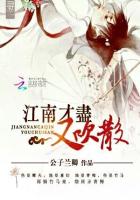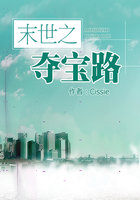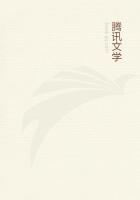OGRAIAE gentis decus! let us sing with Lucretius, one of the great interpreters of Greek thought. How grand and how true is his paean!
Out of the night, out of the blinding night Thy beacon flashes;--hail, beloved light Of Greece and Grecian; hail, for in the mirk Thou cost reveal each valley and each height.
Thou art my leader, and the footprints shine, Wherein I plant my own....
* * * * *
The world was shine to read, and having read, Before thy children's eyes thou didst outspread The fruitful page of knowledge, all the wealth Of wisdom, all her plenty for their bread.
[Bk. III.--Translated by D. A. Slater.]
Let us come out of the murky night of the East, heavy with phantoms, into the bright daylight of the West, into the company of men whose thoughts made our thoughts, and whose ways made our ways--the men who first dared to look on nature with the clear eyes of the mind.
Browning's famous poem, "Childe Roland to the Dark Tower Came," is an allegory of the pilgrimage of man through the dark places of the earth, on a dismal path beset with demons, and strewn with the wreckage of generations of failures. In his ear tolled the knell of all the lost adventurers, his peers, all lost, lost within sight of the dark Tower itself--
The round squat turret, blind as the fool's heart, Built of brown stone, without a counterpart In the whole world. lost in despair at an all-encircling mystery. Not so the Greek Childe Roland who set the slug-horn to his lips and blew a challenge. Neither Shakespeare nor Browning tells us what happened, and the old legend, Childe Roland, is the incarnation of the Greek spirit, the young, light-hearted master of the modern world, at whose trumpet blast the dark towers of ignorance, superstition and deceit have vanished into thin air, as the baseless fabric of a dream. Not that the jeering phantoms have flown! They still beset, in varied form, the path of each generation; but the Achaian Childe Roland gave to man self-confidence, and taught him the lesson that nature's mysteries, to be solved, must be challenged. On a portal of one of the temples of Isis in Egypt was carved: "I am whatever hath been, is, or ever will be, and my veil no man has yet lifted."
The veil of nature the Greek lifted and herein lies his value to us. What of this Genius? How did it arise among the peoples of the AEgean Sea? Those who wish to know the rock whence science was hewn may read the story told in vivid language by Professor Gomperz in his "Greek Thinkers," the fourth volume of which has recently been published (Murray, 1912; Scribner, 1912). In 1912, there was published a book by one of the younger Oxford teachers, "The Greek Genius and Its Meaning to Us,"[1] from which those who shrink from the serious study of Gomperz' four volumes may learn something of the spirit of Greece. Let me quote a few lines from his introduction:
[1] By R. W. Livingstone, Clarendon Press, Oxford, 1912 [2d ed., revised, 1915].
"Europe has nearly four million square miles; Lancashire has 1,700; Attica has 700. Yet this tiny country has given us an art which we, with it and all that the world has done since it for our models, have equalled perhaps, but not surpassed. It has given us the staple of our vocabulary in every domain of thought and knowledge. Politics, tyranny, democracy, anarchism, philosophy, physiology, geology, history--these are all Greek words. It has seized and up to the present day kept hold of our higher education. It has exercised an unfailing fascination, even on minds alien or hostile. Rome took her culture thence.
Young Romans completed their education in the Greek schools....
And so it was with natures less akin to Greece than the Roman.
St. Paul, a Hebrew of the Hebrews, who called the wisdom of the Greeks foolishness, was drawn to their Areopagus, and found himself accommodating his gospel to the style, and quoting verses from the poets of this alien race. After him, the Church, which was born to protest against Hellenism, translated its dogmas into the language of Greek thought and finally crystallized them in the philosophy of Aristotle."
Whether a plaything of the gods or a cog in the wheels of the universe this was the problem which life offered to the thinking Greek; and in undertaking its solution, he set in motion the forces that have made our modern civilization. That the problem remains unsolved is nothing in comparison with the supreme fact that in wrestling with it, and in studying the laws of the machine, man is learning to control the small section of it with which he is specially concerned. The veil of thaumaturgy which shrouded the Orient, while not removed, was rent in twain, and for the first time in history, man had a clear vision of the world about him--"had gazed on Nature's naked loveliness"
("Adonais") unabashed and unaffrighted by the supernatural powers about him. Not that the Greek got rid of his gods--far from it!--but he made them so like himself, and lived on terms of such familiarity with them that they inspired no terror.[2]
[2] "They made deities in their own image, in the likeness of an image of corruptible man. Sua cuique deu fit dira cupido. 'Each man's fearful passion becomes his god.' Yes, and not passions only, but every impulse, every aspiration, every humour, every virtue, every whim. In each of his activities the Greek found something wonderful, and called it God: the hearth at which he warmed himself and cooked his food, the street in which his house stood, the horse he rode, the cattle he pastured, the wife he married, the child that was born to him, the plague of which he died or from which he recovered, each suggested a deity, and he made one to preside over each. So too with qualities and powers more abstract." R.W. Livingstone: The Greek Genius and Its Meaning to Us, pp. 51-52.


